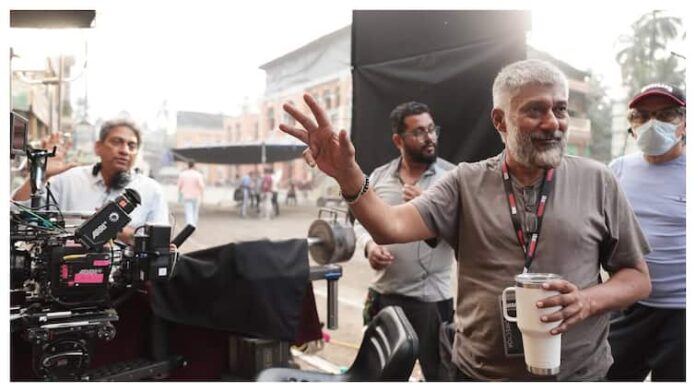Mumbai: Filmmaker Vivek Agnihotri says that the government can travel a long way to help the government revive the Hindi film industry with innovation and creativity with “a little pat”.
The director, known for “The Tashakant Files”, “The Kashmir Files”, and “The Vaccine War”, recently wrote an open letter to Commerce and Industry Minister Piyush Goyal, requesting immediate government support for the struggling Hindi cinema exhibition area.
Agnihotri said that there is no rest on any one unit about industry problems and things need to be addressed many issues before looking upwards.
“This (Hindi film) industry is falling. There are many issues and it is not about blaming anyone. But the time has changed, technology has changed. The way people consume cinema, it has also changed. There are some big problems and I do not think that any person or association can solve them.
“So when Commerce Minister Piyush Goyal ji spoke in ‘Startup Mahakumba’, I liked that he said that it is time that we focus on innovation, creativity and thought generations … with a little inspiration, guidance and patt on the shoulder from the government.
According to Agnihotri, film industry in countries like France, Britain and South Korea is protected by his respective governments. “What France has done in Europe is that he realized that cinema is not just an art, but it could be a very powerful industry and soft power. So they protected it.
“Just as Britain created a British film commission. These commissions are in all European countries. The Korean government supports entertainment, and the Chinese government supports its films. In Japan, society supports cinema in a very large way.” He said that amidst Hindi film industry issues, winding and ticket pricing are correct at the top.
In the cinema exhibition, the winding refers to the strategic time and availability of a film in various distribution channels to maximize revenue.
Most of the materials in India today, the filmmaker said, eventually owned by two-three American streamters.
“I am not criticizing him. They are in business, but when the audience knows that any film, whether it is a film of Rs 1,000 crore or a film of Rs 10 crore, will be available on OTT within four-eight weeks, then why will they go and spend Rs 1,000 in the theater?” Agnihotri said that ticket pricing, which is comparatively low in the south, plays an important role in ensuring footfall in theaters.
“So many people (in the south) movies because pricing is controlled at Rs 100. Whenever these multisplaces celebrate cinema day, they keep pricing around Rs 100. Then you see that every one (screen) is filled in the house regardless of the house.
He said, “It does not matter that three films are going on that day, people watch and watch all those films. Cinema should be the cheapest entertainment in India, but sadly it has become an aristocratic entertainment,” he said.
There were many studios a few years ago, but today there are very few names, Agnihotri said.
“Not just producers, you will see that the studios are also closing their shops. There was a time when I knew at least 50 different independent producers who were producing at least two-three films a year.
“Now look at the tragedy that we are releasing non -stops to old films. There are no new films to be released. The reason is that the Indian producer has closed the shop … I know that many producers who are doing real estate. They had big studios and offices, they are converting them to residential office places.”
(This report has been published as part of the auto-early syndicate wire feed. In addition to the headline, there is no editing in the copy by ABP Live.)
